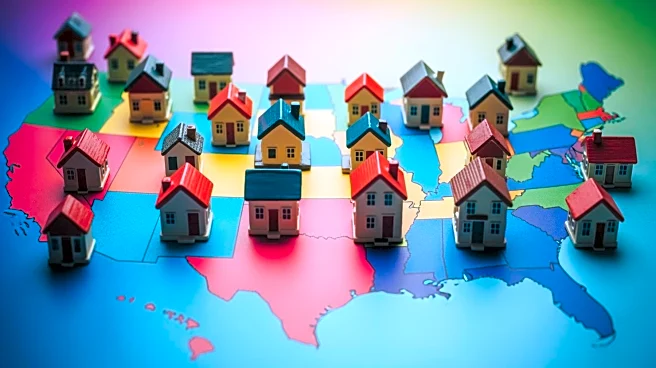What's Happening?
A recent analysis of cross-market demand data from Realtor.com reveals that homebuyers from several major U.S. metropolitan areas are increasingly interested in purchasing homes in Lewiston. The data,
compiled by Stacker, highlights that Seattle, Los Angeles, and Spokane are among the top cities with residents looking to move to Lewiston. The scarcity of homes on the market nationwide, which remains below pre-pandemic levels, is contributing to sustained high home prices despite a slowdown in sales over the past year. The report indicates that online house hunting has become a crucial tool for homebuyers, with 97% of them using online resources according to a 2021 National Association of Realtors report.
Why It's Important?
The interest from residents of major metros in Lewiston's housing market underscores a broader trend of migration from larger cities to smaller, potentially more affordable areas. This shift could have significant implications for Lewiston's local economy and housing market, potentially driving up demand and prices. For residents of Lewiston, this influx could mean increased competition for housing, while local businesses might benefit from a larger customer base. Conversely, for those in the originating metros, this trend might alleviate some pressure on their local housing markets, potentially stabilizing prices and availability.
What's Next?
As more people from larger metros consider relocating to places like Lewiston, local governments and real estate developers may need to address the potential for increased demand on housing and infrastructure. This could involve planning for new housing developments or expanding existing services to accommodate a growing population. Additionally, the trend may prompt policymakers in larger cities to explore strategies to retain residents, such as improving affordability and quality of life.
Beyond the Headlines
The migration trend also raises questions about the long-term sustainability of housing markets in smaller cities like Lewiston. As more people move in, there could be cultural and social shifts, with new residents bringing different expectations and demands. This could lead to changes in local governance, community dynamics, and even political landscapes as new residents integrate into the community.









